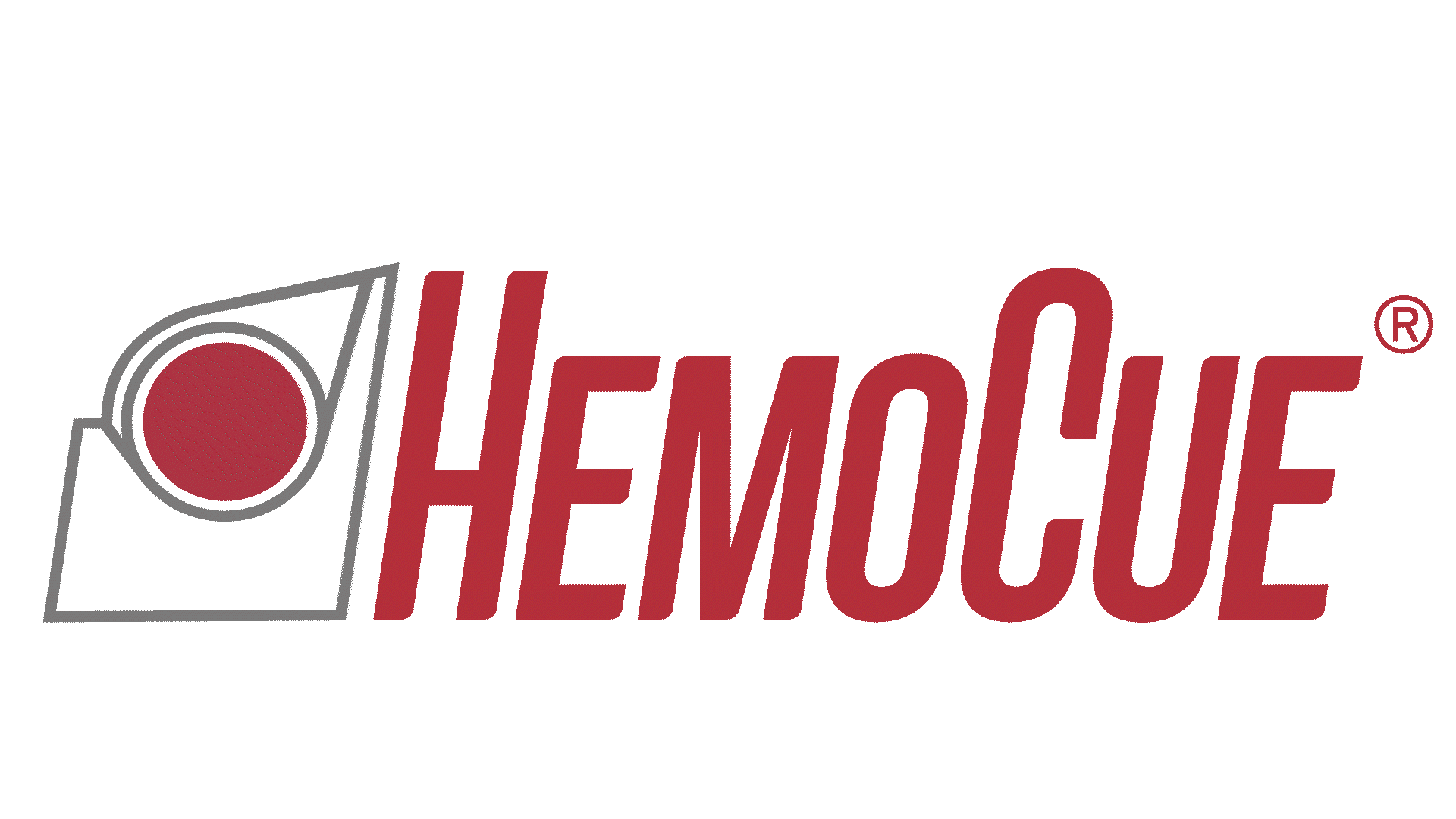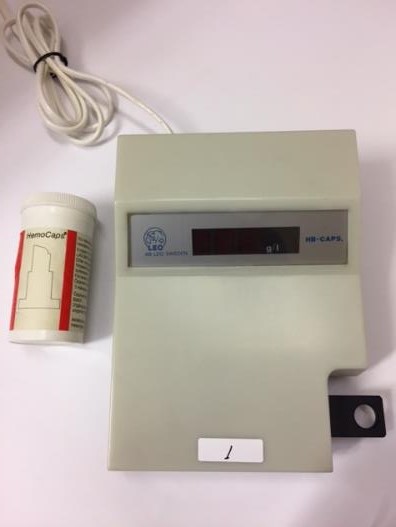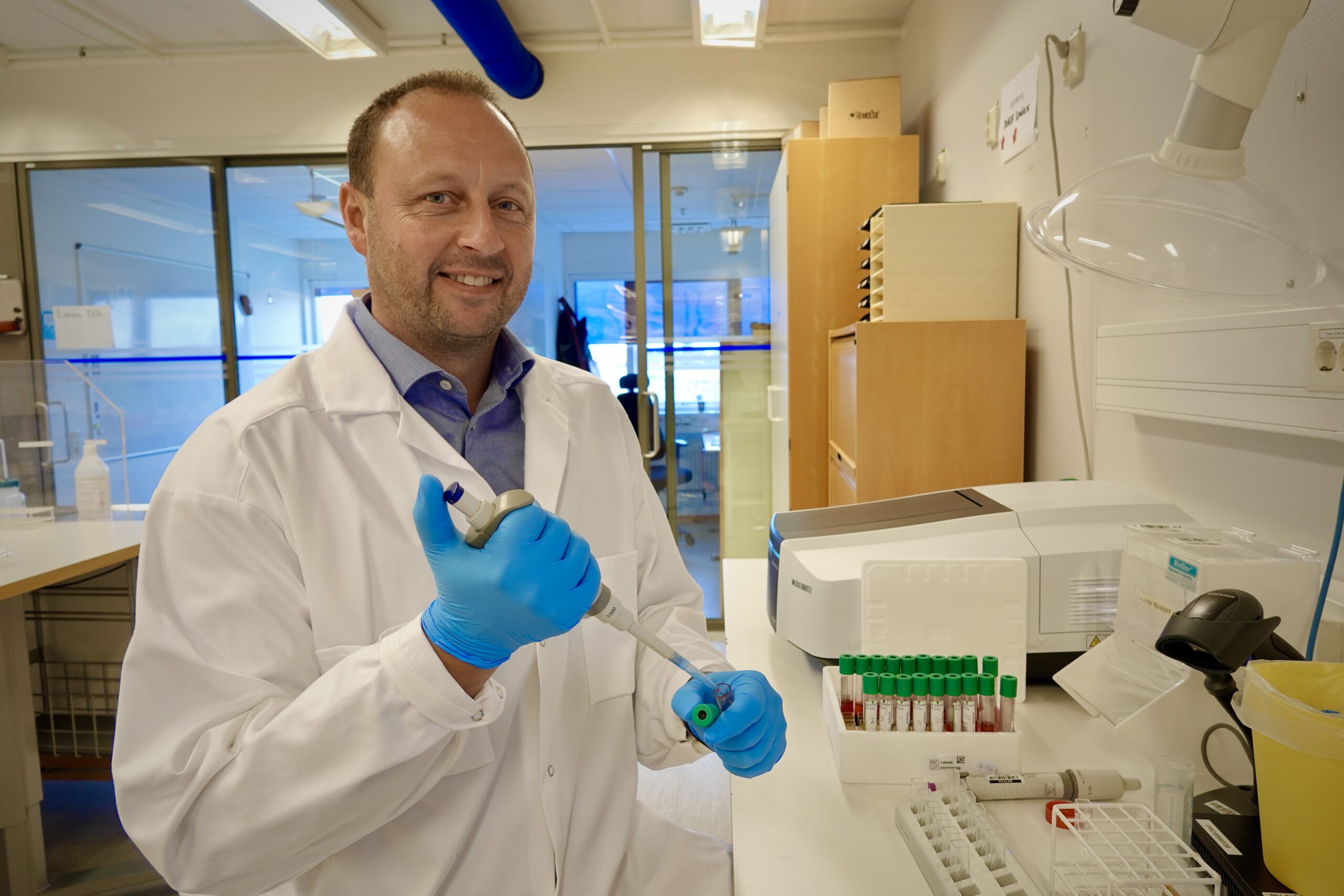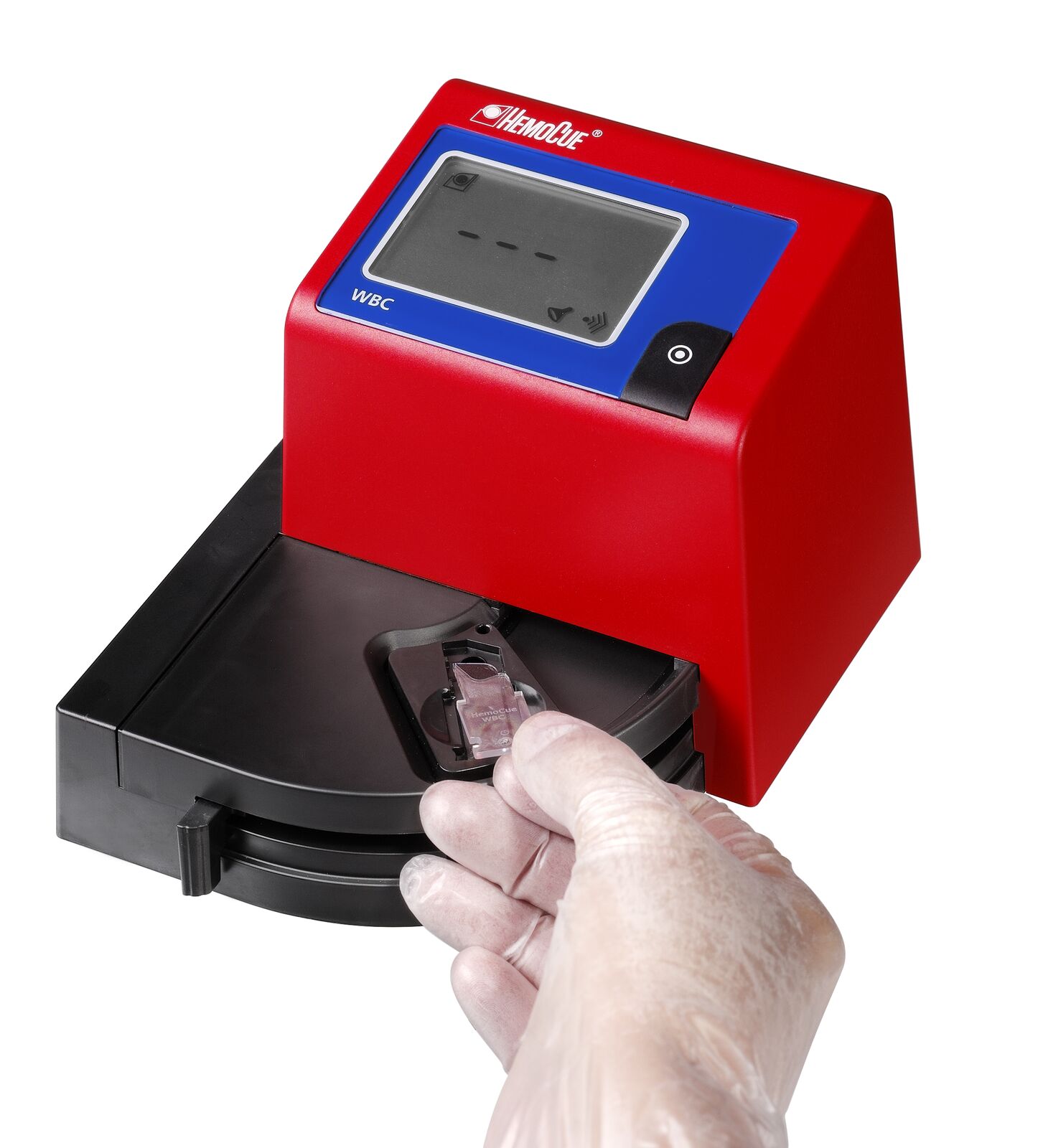Partnering is Our Superpower
Our founders had very different skill sets, but their collaboration worked due to their shared determination to improve patient care. Since then, partnerships have been an essential ingredient in our success.
We have cultivated strong partnerships with our customers, distributors, and channel partners, built lasting bonds with NGOs, and collaborate with medical professionals and researchers to improve our products.
And we strive to strengthen our associates’ unique talents while creating an environment where cooperation thrives.
In a way, partnering is our superpower.
It gives us more strength together than any one of us has individually. Partnering exponentially expands our capabilities and multiplies the opportunities we have to make a positive impact on our customers.
Our founders had very different skill sets, but their collaboration worked due to their shared determination to improve patient care. Since then, partnerships have been an essential ingredient in our success.
We have cultivated strong partnerships with our customers, distributors, and channel partners, built lasting bonds with NGOs, and collaborate with medical professionals and researchers to improve our products. And we strive to strengthen our associates’ unique talents while creating an environment where cooperation thrives.
In a way, partnering is our superpower. It gives us more strength together than any one of us has individually. Partnering exponentially expands our capabilities and multiplies the opportunities we have to make a positive impact on our customers.
CHANNEL PARTNERS ARE THE KEY TO SUCCESS ON A GLOBAL SCALE
Relationships built on transparency and mutual trust open the world to HemoCue
HemoCue products are used in more than 130 countries, and every year 140 million tests are performed with a HemoCue device.
How can a company with just over 400 employees operate on such a large scale? The key lies with a network of channel partners and distributors who provide HemoCue with local market knowledge, customer contacts, regulatory insights and experienced sales and marketing teams.
By listening closely to channel partners and working together to achieve common goals, HemoCue has built collaborations that have led to mutual success on a grand scale.


CHANNEL PARTNERS ARE THE KEY TO SUCCESS ON A GLOBAL SCALE
Relationships built on transparency and mutual trust open the world to HemoCue
HemoCue products are used in more than 130 countries, and every year 140 million tests are performed with a HemoCue device.
How can a company with just over 400 employees operate on such a large scale? The key lies with a network of channel partners and distributors who provide HemoCue with local market knowledge, customer contacts, regulatory insights and experienced sales and marketing teams.
By listening closely to channel partners and working together to achieve common goals, HemoCue has built collaborations that have led to mutual success on a grand scale.
A partnership model is not unusual. But what sets HemoCue partnerships apart, according to Evan Herbst, HemoCue’s Director of Channel & Sales Process Excellence, is that channel partners are considered to be an extension of the company. “It’s about building true partnerships, not buyer-seller relationships. Our partners know that we are in it for the long run,” said Evan. “Successful relationships are built on mutual trust, integrity and openness.” HemoCue has built up a reputation for high-quality and has a culture of compliance. This is a must in the highly regulated medical device industry, and so HemoCue chooses partners carefully, and expects them to be good ambassadors of the HemoCue brand. In return, HemoCue’s partners can expect a responsive and supportive collaboration. “We don’t want to be just another business card from yet another vendor,” said Evan. “It’s a given that our products have to be top notch. But what really makes our partners successful is the hands-on support and guidance they receive from HemoCue’s product experts. Our team will do everything they can to clear obstacles and equip our partners with what they need to succeed.” To this end, local HemoCue employees work with channel partners to share product knowledge and help adapt materials to local market conditions. Partners can rely on HemoCue to listen to their specific needs and provide them with support wherever needed. In addition, HemoCue offers partners a stable infrastructure and highly reliable supply chain. When orders are made, partners can be confident that there will be no issues with delivery. This can, in part, be attributed to the company’s laser-like focus on point-of-care medical products “One of the things that makes us an attractive partner is our focus,” explained Evan. “We don’t have a massive catalog, but instead go deep in specific areas. Our portfolio is concentrated on a few things, which we do very well. This creates a foundation of trust, which we then build on further with personalized support and expertise.”Partnerships, not transactions
A two-way street
Stability and reliability lead to mutual trust
A partnership model is not unusual. But what sets HemoCue partnerships apart, according to Evan Herbst, HemoCue’s Director of Channel & Sales Process Excellence, is that channel partners are considered to be an extension of the company. “It’s about building true partnerships, not buyer-seller relationships. Our partners know that we are in it for the long run,” said Evan. “Successful relationships are built on mutual trust, integrity and openness.” HemoCue has built up a reputation for high-quality and has a culture of compliance. This is a must in the highly regulated medical device industry, and so HemoCue chooses partners carefully, and expects them to be good ambassadors of the HemoCue brand. In return, HemoCue’s partners can expect a responsive and supportive collaboration. “We don’t want to be just another business card from yet another vendor,” said Evan. “It’s a given that our products have to be top notch. But what really makes our partners successful is the hands-on support and guidance they receive from HemoCue’s product experts. Our team will do everything they can to clear obstacles and equip our partners with what they need to succeed.” To this end, local HemoCue employees work with channel partners to share product knowledge and help adapt materials to local market conditions. Partners can rely on HemoCue to listen to their specific needs and provide them with support wherever needed. In addition, HemoCue offers partners a stable infrastructure and highly reliable supply chain. When orders are made, partners can be confident that there will be no issues with delivery. This can, in part, be attributed to the company’s laser-like focus on point-of-care medical products “One of the things that makes us an attractive partner is our focus,” explained Evan. “We don’t have a massive catalog, but instead go deep in specific areas. Our portfolio is concentrated on a few things, which we do very well. This creates a foundation of trust, which we then build on further with personalized support and expertise.”Partnerships, not transactions
A two-way street
Stability and reliability lead to mutual trust

ONE OF THE LARGEST SMALL COMPANIES IN SWEDEN
HemoCue is part of a global team working to help each other succeed
With around 400 employees, HemoCue is considered a small-to-medium sized company. However, it draws on the expertise of more than 20 other successful companies and learns best practices from 80,000 associates worldwide.
HemoCue became part of the Danaher Group in 2013. Since then, they have partnered with the other Danaher companies to create better systems and to optimize processes through DBS: the Danaher Business System.
The companies in the Danaher Group are carefully selected as leaders in their particular market, with a focus on companies within life sciences, diagnostics and environmental and applied solutions. Each Danaher operating company works independently and maintains its own brand identity. Yet DBS binds the companies together. This allows them to build on the knowledge of other companies, sharing the secrets of what made each successful, and gaining skills to do better in areas that need improving. The system is applied to all areas of business with the goal of helping the group companies help each other reach their full potential and to best serve customers’ needs. Mattias Wik is one of three DBS leaders at HemoCue, who help optimize processes, coach teams, and run improvement workshops, known as Kaizen Events. Mattias and the HemoCue DBS team are connected with a network of DBS leaders around the world, from whom they gain expertise and learn new techniques. Associates from other Danaher operating companies are often invited to Kaizen events to provide fresh perspectives and share their experiences. In essence, there is a global task force working across the 20+ operating companies that support companies, departments and individuals. One large project Mattias was involved with over the last year focused on helping HemoCue’s production become more agile. Previously, HemoCue’s production teams were divided along product specialities, with very little overlap. This meant that associates were very good at one aspect of production, but if there were changes in demand, it was difficult to quickly adapt, jeopardizing deliveries. The production teams recognized this potential weakness and worked to solve it in a series of Kaizen events. Associates at all levels and from all areas of production were involved. “It is so important to include everyone involved in the process,” said Mattias. “Our production teams have a lot of expertise. When they were all brought together, the teams were able to build on each other’s ideas and came up with ingenious solutions.” The teams quickly sank their teeth into the challenge. They visualized an ideal future state, in which teams were cross-trained and could jump from one production area to another as needed. Then they performed specific steps to reach the ideal state, including peer-to-peer training sessions, workshops, and educational seminars. Now, 40% of employees are cross-trained to work in multiple functions. As a result of the highly agile teams, efficiency has improved greatly and so has on-time delivery. HemoCue now has an on-time delivery rate of 97%, which places them among the top global medical device manufacturers. The change has also been beneficial for associates, who have gained new skills and have greater flexibility to accommodate illnesses and vacations. “One of the most rewarding parts of the process is working across functional areas to become stronger together,” said Mattias. “We may be small, but together we are powerful.”Success breeds success
A network of knowledge, experience and collaboration
HemoCue’s production goes from product specific to agile
Increased efficiency leads to best-in-class on-time delivery rates

ONE OF THE LARGEST SMALL COMPANIES IN SWEDEN
HemoCue is part of a global team working to help each other succeed
With around 400 employees, HemoCue is considered a small-to-medium sized company. However, it draws on the expertise of more than 20 other successful companies and learns best practices from 80,000 associates worldwide.
HemoCue became part of the Danaher Group in 2013. Since then, they have partnered with the other Danaher companies to create better systems and to optimize processes through DBS: the Danaher Business System.
The companies in the Danaher Group are carefully selected as leaders in their particular market, with a focus on companies within life sciences, diagnostics and environmental and applied solutions. Each Danaher operating company works independently and maintains its own brand identity. Yet DBS binds the companies together. This allows them to build on the knowledge of other companies, sharing the secrets of what made each successful, and gaining skills to do better in areas that need improving. The system is applied to all areas of business with the goal of helping the group companies help each other reach their full potential and to best serve customers’ needs. Mattias Wik is one of three DBS leaders at HemoCue, who help optimize processes, coach teams, and run improvement workshops, known as Kaizen Events. Mattias and the HemoCue DBS team are connected with a network of DBS leaders around the world, from whom they gain expertise and learn new techniques. Associates from other Danaher operating companies are often invited to Kaizen events to provide fresh perspectives and share their experiences. In essence, there is a global task force working across the 20+ operating companies that support companies, departments and individuals. One large project Mattias was involved with over the last year focused on helping HemoCue’s production become more agile. Previously, HemoCue’s production teams were divided along product specialities, with very little overlap. This meant that associates were very good at one aspect of production, but if there were changes in demand, it was difficult to quickly adapt, jeopardizing deliveries. The production teams recognized this potential weakness and worked to solve it in a series of Kaizen events. Associates at all levels and from all areas of production were involved. “It is so important to include everyone involved in the process,” said Mattias. “Our production teams have a lot of expertise. When they were all brought together, the teams were able to build on each other’s ideas and came up with ingenious solutions.” The teams quickly sank their teeth into the challenge. They visualized an ideal future state, in which teams were cross-trained and could jump from one production area to another as needed. Then they performed specific steps to reach the ideal state, including peer-to-peer training sessions, workshops, and educational seminars. Now, 40% of employees are cross-trained to work in multiple functions. As a result of the highly agile teams, efficiency has improved greatly and so has on-time delivery. HemoCue now has an on-time delivery rate of 97%, which places them among the top global medical device manufacturers. The change has also been beneficial for associates, who have gained new skills and have greater flexibility to accommodate illnesses and vacations. “One of the most rewarding parts of the process is working across functional areas to become stronger together,” said Mattias. “We may be small, but together we are powerful.”Success breeds success
A network of knowledge, experience and collaboration
HemoCue’s production goes from product specific to agile
Increased efficiency leads to best-in-class on-time delivery rates
PARTNERING TO PROMOTE LIFELONG HEALTH AND WELL-BEING
We proudly support global health organizations with essential point-of-care diagnostics
At HemoCue, we firmly believe that everyone deserves access to healthcare, and that no one should be left behind.
We are proud to stand side by side with global humanitarian aid organizations, funding institutes, local and national health organizations, as well as doctors and nurses around the world who are devoted to improving health outcomes.


PARTNERING TO PROMOTE LIFELONG HEALTH AND WELL-BEING
We proudly support global health organizations with essential point-of-care diagnostics
At HemoCue, we firmly believe that everyone deserves access to healthcare, and that no one should be left behind.
We are proud to stand side by side with global humanitarian aid organizations, funding institutes, local and national health organizations, as well as doctors and nurses around the world who are devoted to improving health outcomes.

40+ Years Dedicated to Improving Quality of Care
Charlotte Wigermo’s career has been intertwined with HemoCue and POC testing
Charlotte Wigermo has worked in the biomedical sector for more than 40 years and has no intention of stopping anytime soon.
She is currently a Point of Care Process Manager in the clinical laboratory of Region Skåne, which administers healthcare throughout the southern region of Sweden, Skåne. Charlotte oversees a team that manages a range of point-of-care testing equipment, including HemoCue products.
In the late 1970 and early 1980s, Charlotte worked as a biomedical analyst in the clinical lab at Kristianstad Hospital. While there, she got to know two enterprising young men in the R&D department, Jan Lilja and Sven-Erik Nilsson, who would go on to found HemoCue.
Charlotte was kind enough to meet with us to describe how her career has been intertwined with HemoCue. She explains what it was like to work in the same organization as HemoCue’s founders and the impact their inventions had on her personally and for the healthcare sector.
According to Charlotte, there was a family atmosphere at Kristianstad Hospital. The lab was filled with very capable, talented people who took their work seriously, but also liked to have fun. “There was never a boring day at work,” said Charlotte. “Sven-Erik and Jan were very fun to be around. They were very inspirational and always coming up with new ideas. They were inventors to their core.” The two inventors also contributed a great deal to the pleasant work atmosphere. Charlotte described how Jan would always make glögg at Christmastime, filling the lab with the fragrant scent of mulled wine and spices. Their manager, Nils Tyding, who had studied under Nobel prize winner Sune Bergström, allowed employees a great amount of freedom to pursue special projects. Charlotte credits Nils’ flexible leadership style to helping Sven-Erik and Jan develop their invention. When Sven-Erik and Jan had formulated their idea for a portable device to measure hemoglobin at the point of care, Charlotte knew that it was important work. But not how important. “We had no idea how big it would become and the consequences it would have,” said Charlotte. “It was pioneering work that paved the way for many other point-of-care devices. They undoubtedly improved the quality care for many patients around the world. Point-of-care tests make it possible for patients to receive test results right when they need it – while they still at the health facility.” In her current role, Charlotte develops strategies to ensure that point-of-care testing is optimized throughout the region. She has her finger on the pulse of healthcare professionals and provides HemoCue with valuable input about how their products perform on the frontlines. She describes her collaboration with HemoCue as a kind of symbiosis, where both parties get something positive out of the relationship. As Charlotte Wigermo reflected on her career that spanned four decades, it was clear that she was satisfied with her work and chosen path. “I would not want to work with anything else. Each day I have a chance to make a real difference for patients,” Said Charlotte. “I’ve been at it for more than 40 years and have no plans of retiring!”A family atmosphere with capable colleagues
We knew it was important, but never imagined how big it would become
A symbiotic relationship

40+ Years Dedicated to Improving Quality of Care
Charlotte Wigermo’s career has been intertwined with HemoCue and POC testing
Charlotte Wigermo has worked in the biomedical sector for more than 40 years and has no intention of stopping anytime soon.
She is currently a Point of Care Process Manager in the clinical laboratory of Region Skåne, which administers healthcare throughout the southern region of Sweden, Skåne. Charlotte oversees a team that manages a range of point-of-care testing equipment, including HemoCue products.
In the late 1970 and early 1980s, Charlotte worked as a biomedical analyst in the clinical lab at Kristianstad Hospital. While there, she got to know two enterprising young men in the R&D department, Jan Lilja and Sven-Erik Nilsson, who would go on to found HemoCue.
Charlotte was kind enough to meet with us to describe how her career has been intertwined with HemoCue. She explains what it was like to work in the same organization as HemoCue’s founders and the impact their inventions had on her personally and for the healthcare sector.
According to Charlotte, there was a family atmosphere at Kristianstad Hospital. The lab was filled with very capable, talented people who took their work seriously, but also liked to have fun. “There was never a boring day at work,” said Charlotte. “Sven-Erik and Jan were very fun to be around. They were very inspirational and always coming up with new ideas. They were inventors to their core.” The two inventors also contributed a great deal to the pleasant work atmosphere. Charlotte described how Jan would always make glögg at Christmastime, filling the lab with the fragrant scent of mulled wine and spices. Their manager, Nils Tyding, who had studied under Nobel prize winner Sune Bergström, allowed employees a great amount of freedom to pursue special projects. Charlotte credits Nils’ flexible leadership style to helping Sven-Erik and Jan develop their invention. When Sven-Erik and Jan had formulated their idea for a portable device to measure hemoglobin at the point of care, Charlotte knew that it was important work. But not how important. “We had no idea how big it would become and the consequences it would have,” said Charlotte. “It was pioneering work that paved the way for many other point-of-care devices. They undoubtedly improved the quality care for many patients around the world. Point-of-care tests make it possible for patients to receive test results right when they need it – while they still at the health facility.” In her current role, Charlotte develops strategies to ensure that point-of-care testing is optimized throughout the region. She has her finger on the pulse of healthcare professionals and provides HemoCue with valuable input about how their products perform on the frontlines. She describes her collaboration with HemoCue as a kind of symbiosis, where both parties get something positive out of the relationship. As Charlotte Wigermo reflected on her career that spanned four decades, it was clear that she was satisfied with her work and chosen path. “I would not want to work with anything else. Each day I have a chance to make a real difference for patients,” Said Charlotte. “I’ve been at it for more than 40 years and have no plans of retiring!”A family atmosphere with capable colleagues
We knew it was important, but never imagined how big it would become
A symbiotic relationship



 White blood cell count provides valuable information in the diagnosis or exclusion of an infection. Based on HemoCue’s microcuvette technology, the WBC system allows medical professionals to accurately determine total white blood cell counts right at the point of care.
White blood cell count provides valuable information in the diagnosis or exclusion of an infection. Based on HemoCue’s microcuvette technology, the WBC system allows medical professionals to accurately determine total white blood cell counts right at the point of care. The WHO called for reducing anemia by 50% in women of reproductive age, as part of its 2025 World Health Assembly Global Nutrition Targets. This made the assessment of anemia a global priority, and at HemoCue, we knew that we could make a difference. We launched
The WHO called for reducing anemia by 50% in women of reproductive age, as part of its 2025 World Health Assembly Global Nutrition Targets. This made the assessment of anemia a global priority, and at HemoCue, we knew that we could make a difference. We launched